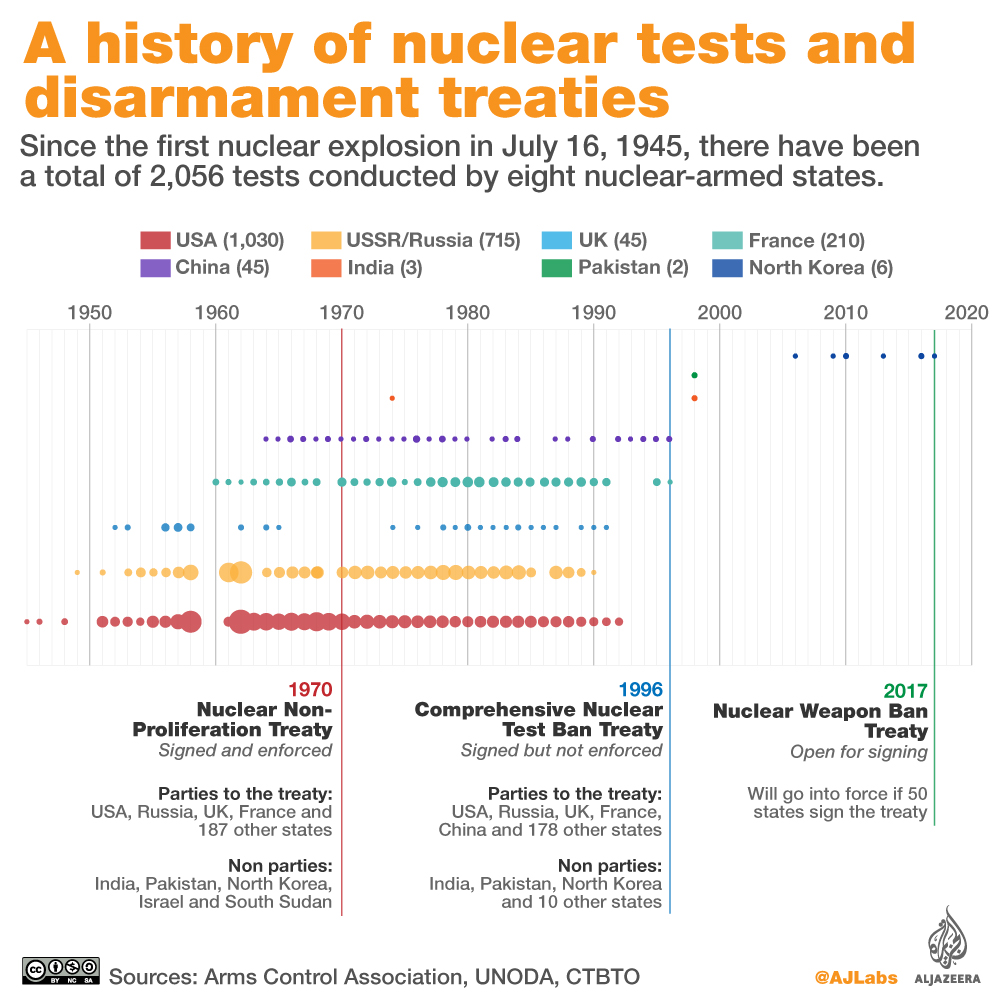Dozens of states sign treaty banning nuclear weapons
More than 50 nations sign agreement calling for a global ban on nuclear weapons, but none of them possess such arms.

In a new attempt towards the total elimination of nuclear weapons, the United Nations has introduced a new treaty banning the use, development, testing or storing of nuclear weapons under any circumstances.
The agreement was signed on Wednesday in New York by more than 50 UN member states, but several nuclear powers, including the US, UK and France, boycotted the signing ceremony.
Keep reading
list of 4 itemsUS blocks Palestinian push for full UN membership at Security Council
Why is Germany maintaining economic ties with China?
UN’s Libya envoy resigns citing no hope for political progress
“There remain some 15,000 nuclear weapons in existence. We cannot allow these doomsday weapons to endanger our world and our children’s future,” UN Secretary-General Antonio Guterres said on Wednesday.
Officially known as the Treaty on the Prohibition of Nuclear Weapons, the agreement was adopted in July 2017 at a UN conference in New York.
A total of 122 countries had voted in favour of adopting the treaty, while the Netherlands was the only country that voted against it – Singapore abstained.
The move was seen as only symbolic since all the nuclear-armed states and several other countries did not take part in the July vote.
“This initiative clearly disregards the realities of the international security environment. Accession to the ban treaty is incompatible with the policy of nuclear deterrence, which has been essential to keeping the peace in Europe and North Asia for over 70 years,” the US, UK and France said in a joint statement in July, adding that they do not plan to ever become party to the treaty.

The agreement comes amid increasing tensions over North Korea’s nuclear and missiles tests. On Tuesday, US President Donald Trump vowed to “totally destroy North Korea” if needed.
“This treaty [banning nuclear weapons] offers no solution to the grave threat posed by North Korea’s nuclear program, nor does it address other security challenges that make nuclear deterrence necessary,” added the July statement by the US, UK and France.
The pact is one of the several international agreements aimed towards nuclear non-proliferation and disarmament. Two other major treaties are the Nuclear Non-Proliferation Treaty and the Comprehensive Nuclear Test Ban Treaty, introduced in 1970 and 1996 respectively.
The latter has yet to come into force, subject to ratification from China, Egypt, India, Iran, Israel, North Korea, Pakistan and the US.